#The Richest Countries in Europe (€)
Explore tagged Tumblr posts
Text
I think a lot of people's perception of "US centrism" on this site is "americans assuming us-specific problems are universal" but i've found it just as often if not more often manifests as the opposite. Usamericans thinking a problem people deal with worldwide (food deserts, late stage capitalism, bigotry) or a problem that did start primarily in the US but has been exported worldwide via cultural imperialism (this particular example is not the us but canada, but I sure did looooove having trucker protests in my country after they got 'inspired' by those in north america /s) are things only they have to deal with. I regularly get tags on this post that say something like 'blame the puritans for ruining american society' or will straight up go '#usa #fuck this country #i bet the rest of the world doesn't have this problem' I am from the Netherlands and have never set foot on the american continent.
#us centrism#anyone remember the post about how you benefit from living in the imperial core even if you are in other ways marginalized#and people were like 'um actually some people in the usa are POOR'#listen... being poor in the richest country in the world does in fact mean you still benefit from living in the world's richest country#your standards of living are higher than they would be if you were poor in countries still affected by colonialism and imperialism.#doesn't mean they're GOOD they're criminally bad and you deserve better but you do in fact still benefit from imperialism#and i say this as someone else living in the imperial core like no yeah i *absolutely* benefit from that.#but i KNOW that#europeans might contribute to this a bit bcs we do loooove to have a superiority complex about america even if it's undeserved#having better healthcare more trains and less guns does not make us problem free we suck#and have uhhh caused a significant amount of the problems on the other continents.#does mean we tend to be more aware of the privilege we have living here#but since europe is the only other continent usians know about some think 'murica is unique in having... bigots. or structural problems.
23 notes
·
View notes
Video
Os Países Mais Ricos da Europa (€)
0 notes
Text
Bernie is wrong. He has always been wrong and is still wrong. The flaw in his theory is what he deems the “wealthy elite” versus what everyday Americans consider them to be. Voters don’t see all billionaires as the elites. They see college-educated liberals on the coasts, some of whom are billionaires, as elites.
Bernie-style populism didn’t land because billionaires figured out long ago they could undermine it by being socially right-wing, and the working class would forgive their wealth and privilege. That’s why this same demographic is willing to make it rain for grifters like Joel Osteen and Pat Robertson. That’s why they worship the wealthiest man on the planet like a God and consider him some real-life Tony Stark. People dismissed Donald Trump as a shameless attention-hungry New York oligarch until he called Mexicans rapists. Then he shot up to the top of the GOP primary polls. The working class didn’t think much of Elon Musk until he said “pronouns suck.” Then he became their hero. A scion of working-class Pennsylvania lost his US Senate seat last week to a hedge fund manager from Connecticut. West Virginia elected their richest man to the Senate after electing him governor – as a Democrat and later a Republican. Ohio tossed out their longtime Democratic senator, known for his strong support of labor rights, for – literally, no joke – a used-car salesman.
You can’t tell me the working class in America thinks being a billionaire alone is what makes one a “wealthy elite.” There are significant factors at play here Bernie is either oblivious to or purposely ignorant of.
In college, a professor once told me that Communism never succeeded in the United States because we are too religious and proud as a country. Religion, traditions, and culture were never widely discredited the way they were in Europe and Asia, where the clergy and nobility kept the bourgeoisie in figurative chains for centuries. The relative ease of social mobility made America unique compared to its Western counterparts. Historically, American progressivism has been focused on expanding social mobility – initially limited to only white men – to identity groups who had been denied it at the start: blacks, women, and immigrants. We have done it, with various amounts of success. While it may seem counterintuitive, Americans pride themselves in being the nation that pioneered the idea that wealth and status can be achieved through ingenuity and hard work and not just based on a lucky roll of the genetic dice, as it was in the Old World. It doesn’t mean we don’t have generational wealth in our country; we do, but since it isn’t the sole way to achieve wealth and power, we don’t care nearly as much about destroying all of it. Further, we will happily endorse it if the oligarchs and the aristocrats vow to promote and protect the social values we care about and the social hierarchy that benefits us.
It’s one of the reasons I believe Bernie could never beat Trump. If you ask working-class people what they want: an anti-immigrant, anti-intellectual billionaire or a Vermont socialist backed by kids from Harvard and UC Berkeley who hate our traditions and customs, the working class will always back the billionaire.
–Nick Rafter, "Bernie Sanders Can Take a Seat"
2K notes
·
View notes
Text
কাঁড়ি কাঁড়ি টাকা..! গাড়ি-বাংলো-ব্যাঙ্ক ব্যালেন্স..! বিশ্বের সবচেয়ে ধনী 'এই' দেশ
বড়লোকি কী জিনিস এই দেশে এসে দেখুন! আমেরিকা, রাশিয়া, চিন, জার্মানি ও ফ্রান্স বিশ্বের বৃহৎ অর্থনীতি ও শক্তিশালী দেশ হলেও আয়ের দিক থেকে তারা ছোট দেশগুলির চেয়ে পিছিয়ে রয়েছে। বিশ্বাস না হলেও বাস্তবে কিন্তু বিশ্বের ধনী দেশের তালিকায় অনেক পিছিয়ে রয়েছে এই বড় দেশগুলি। চলুন দেখে নেওয়া যাক সেই তালিকা যাতে রয়েছে বিশ্বের সেই ধনী দেশগুলি যারা আয়ের দিক থেকে শক্তিশালী দেশগুলোকে পিছনে ফেলে…
View On WordPress
#Bermuda#GDP#Ireland#Luxembourg#Norway#Qatar#richest country in asia#richest country in europe#richest country in the world per capita#richest country per capita income#Singapore#top 5 richest country in the world#top richest country in the world 2023#World Richest Country#World top 5 Richest Countries#world top richest country in 2023#Worlds Richest Countries#Worlds top 5 richest countries#আমেরিকা#চিন#জার্মানি ও ফ্রান্স#বিশ্বের ধনী দেশ#রাশিয়া
0 notes
Text
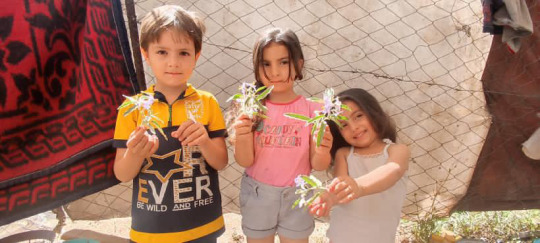
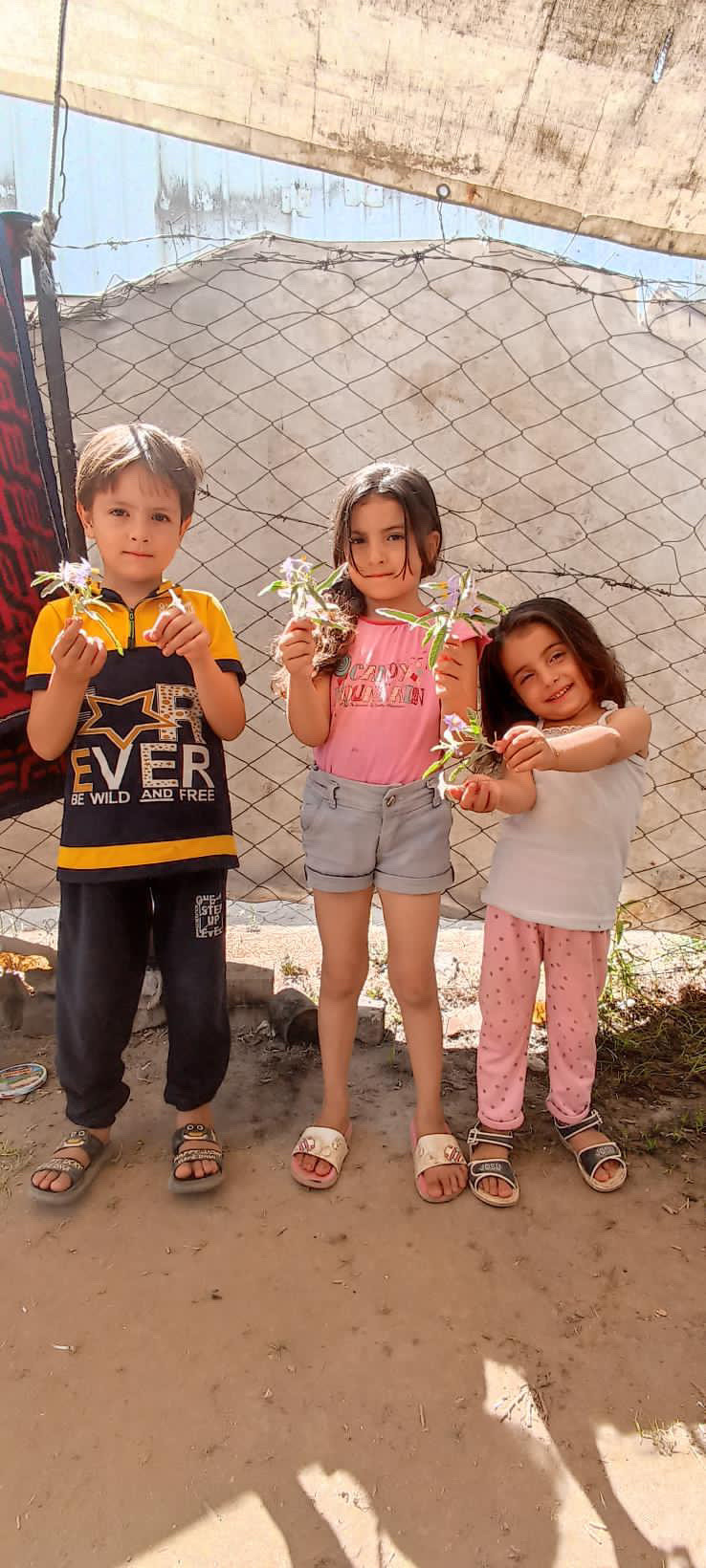
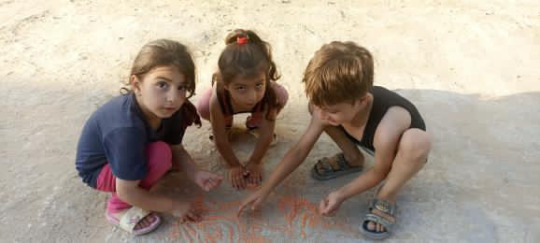
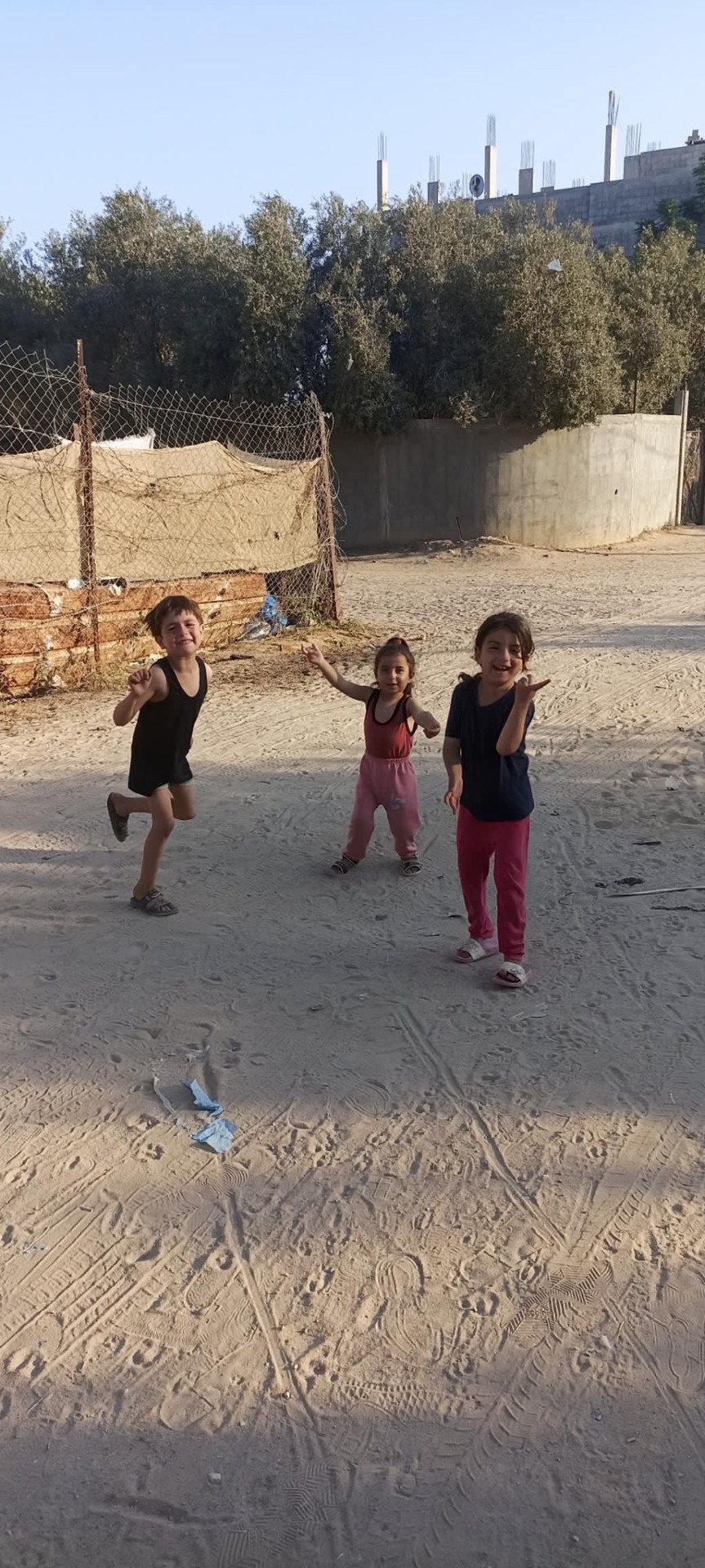
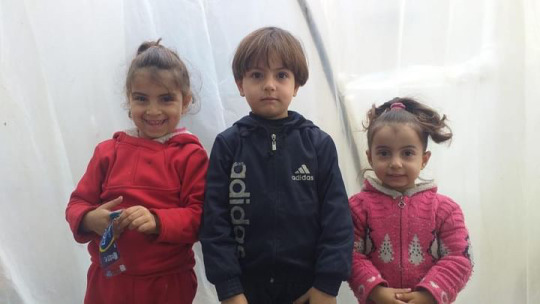
i was so frightened when i saw the fires outside al aqsa martyr’s hospital in the center of the strip. a hospital still standing, one of the last, named in honor of the palestinian dead.
this is where my dearest friend mohamed, his wife manal, and these three beautiful children have been sheltering. i waited in dread and fear to learn if these children were among the human beings burned alive. i couldn’t eat. i paced and shook.
when the intensification of the genocide on palestine began on october 7th, 2023 (a continuation of the nakbas, “catastrophes” “disasters” that the illegitimate entity has visited upon the people of the land since its inception less than a hundred years ago), i struggled to pray.
god seemed all around in the silence, but i felt insecure at the prospect of shouting into that darkness with all of my heart. it seemed petty, somehow - what did i have to pray for? my ancestors escaped a catastrophe in europe. many, many died, but enough survived to drop me in this white skin in the richest country in the world. what does a winner in a global bloodsport have to pray for?
as i have watched israel’s unmasking, it is as if the scales have fallen from my eyes with hashem. i know now that i cannot gaze upon the lord god’s silent face in the abyss but look instead upon my muslim brothers who are my own family. my own flesh and blood.
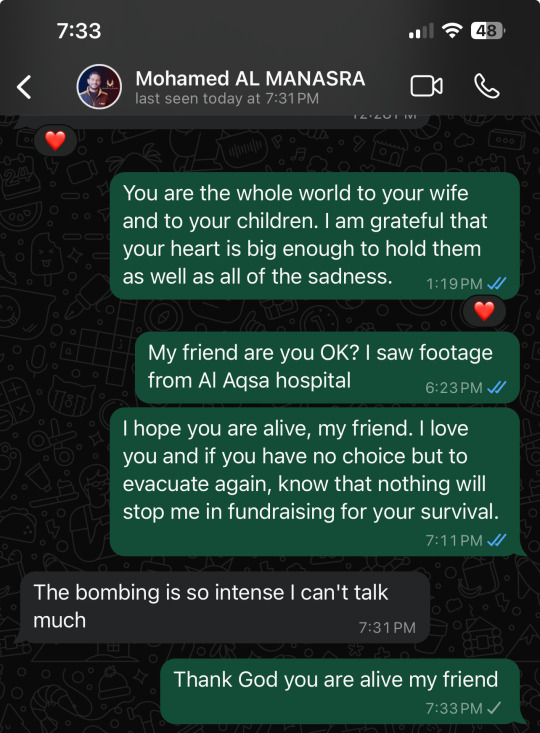
when i finally received a text from mohamed, i quietly left the room i had stood in and dropped to my knees in the quiet dark. there, i made god. here is god’s face:

how we care for these children. look into their eyes. how will you honor them? do you have a skill? will you write a song for them? draw a picture for them? so the world knows their story and loves them enough to tear this wretched world open and build one that keeps them safe?


my favorite drawings i have ever made are my drawings for mohamed’s family.
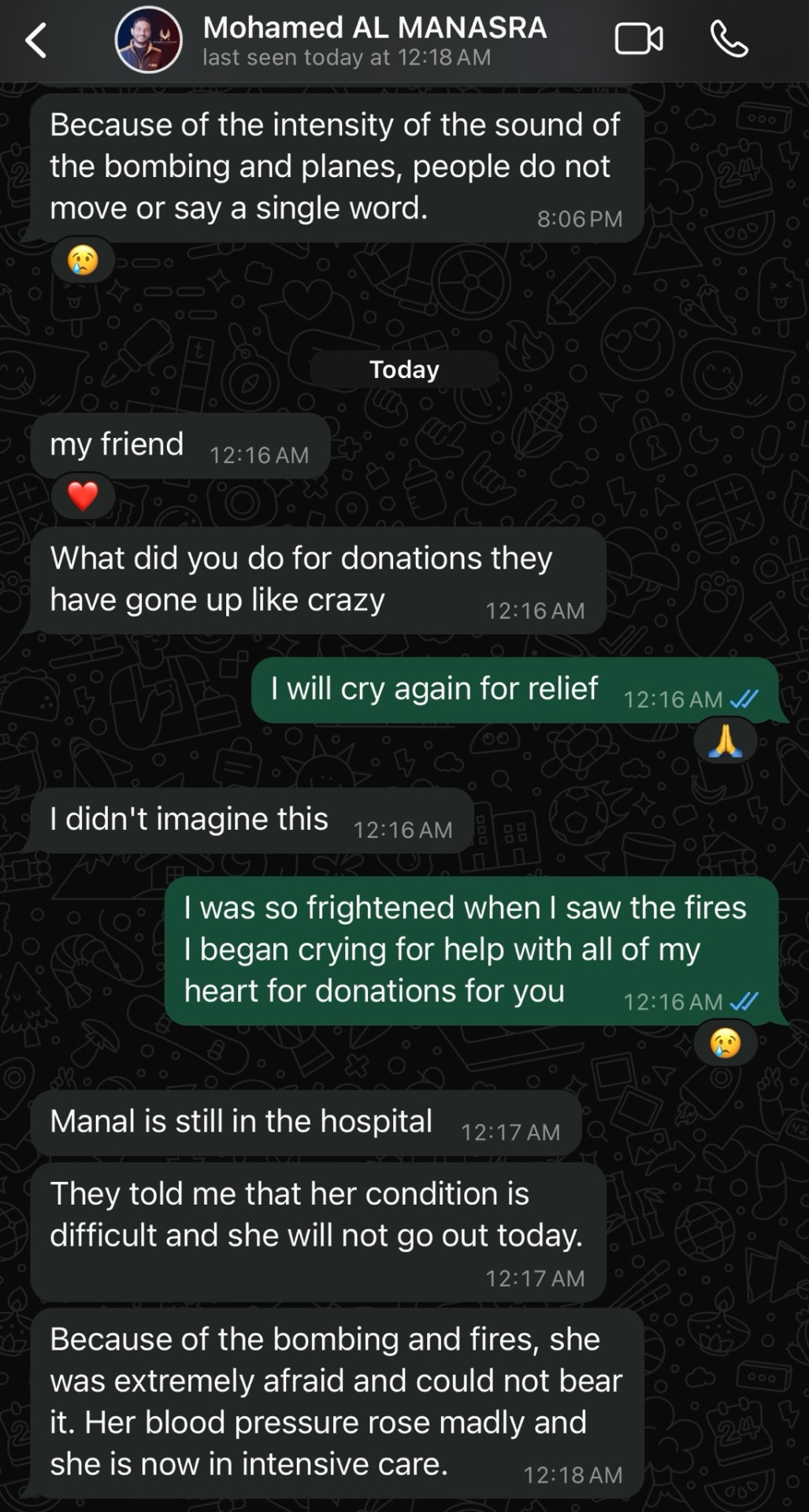
how do we meet what empire is doing to our family?
throw sand in its gears by any means necessary. love the living with all of your heart.
give your money away. it’s only money. give your time away. that’s what time is for. give your heart away. that’s what that’s for too.
Y'varekh'khah Adonai V'yishm'rekha; a free Falastin, B’ezrat Hashem, Adonai Adonai Amen.
445 notes
·
View notes
Text
Solarpunk Autumns. Solarpunk Winters.

Solarpunk as a genre exists in a state of a permanent summer. Both as a genre, and an aesthetic. Solarpunk pictures usually show us worlds that have everything in so many shades of green. Green bushes. Green trees. Green everything. Fields in Solarpunk are always filled with ripe corn and wheat. And trees in Solarpunk are full of ripe fruit.
But if we look into Solarpunk worldbuilding there is also the fact that of course at some point at many places of the world it will become autumn, and winter.
I mean, I am feeling it right now, sitting here in my bed with three blankets and shivering, as the summer has very suddenly ended.
Sure, Solarpunk originated from Brazil. And while I do not know a whole lot about Brazillian climate, I do understand that it is close enough to the equator to be fairly warm yearround.
But I honestly would love to see more stories and artworks set in Solarpunk worlds during the autumn and winter. Especially because it is a very interesting topic when it comes to both the renewable energies and the food systems of Solarpunk worlds.
Now, admittedly, the renewable energy is less interesting to me, but we still should talk about it. In winter and autumn a lot of the renewable energy sources are a bit less viable. The sun has less energy and the further north (or south) you go, the less sun you get during the winter. Wind turbines also often struggle because there is in fact too much wind - and some older turbines do not do too well during harsh winter conditions. Water usually has less of a problem, unless the water energy is created in shallow conditions where the water freezes. But of course, there is nuclear energy to take care of most issues, even if everything else fails - even though some people still do not want to hear about it.
The food aspect is a lot more interesting though, especially from a modern point of view.
Because we people today are very used to eating the same stuff year around. Like potatoes, carrots, bellpeppers, tomatoes, cabbage, oranges, apples, pears, and bananas are usually available in the supermarket no matter when you go there. But of course we also know that those only are there because of the rather destructive ways we use to cultivate food and bring it to us. These things usually are grown somewhere closer to the equator and then are brought to Europe/North America via plane, emitting a lot more CO2.
Of course, this is a fairly new development. For the most of human history, nobody - or only the very richest people - had access to imported food like that. So instead they would only eat was either was available in their own country and their own fields right now, or that they could conserve in some way or form.
And frankly... I think that is something I would like to see some more off in Solarpunk media. In people not needing everything to be available all the time. And people also working to conserve food in one way or another to make it last longer.
Also I do want to bring it up again: There were a lot of well known "winter vegetables" in Europe during most of our history there. Stuff that would get ripe in late autumn and would keep rather well. And a lot of those vegetables have been forgotten.
So... Yeah, I really would see that issue discussed a bit more.
And sure, we might be able to worldbuild around the issue in some degree with greenhouses and stuff. But I think it would be nice to just question our relation with the always available foods.
#solarpunk#lunarpunk#food culture#food#vegetables#fruits#renewables#renewable energy#history#scifi#clifi#climate fiction
244 notes
·
View notes
Text

remember when usamericans were calling themselves third worlders for some reason it's not very third worldly to have military bases in almost every country in the world and have the ability to cause continent-wide coups
#worst#and to also compare your country - which is the richest in the west and controls everyone - to countries that actually suffer from poverty#and total loss of political control#all the while your institutions rival half of Europe's institutes#is a special type of unintentional humblebrag that I hate#uscentrism
476 notes
·
View notes
Text
can't even have a vacation

tf 141 x fem!reader (? not really, but if i continue this, then that is where it would lead to)
cw | blood, death, reader gets hurt, grammatical errors, reader is a u.s. citizen (and has a job as an engineer) but nothing else of reader is described, ghost gives a terrible first impression (terrible jokes too), etc.

You raised your phone to eye level, a light, little smile on your lips as you pressed on the white circle on the screen. The camera on your phone sounding out a quiet click as it snapped a picture of the view.
As a U.S. citizen who worked the day they graduated college, you were finally able to take your very first vacation. So with your newly acquired passport, your newly bought luggage, and your taste for something other than the bland walls of your overpriced apartment you turned off your electric and water so you wouldn’t get billed, handed the keys to your sister so she could watch your apartment from time to time and headed off out of the U.S. borders and across the sea.
With all the time you worked, you had managed to obtain a considerable amount of paid time off, two months’ worth, in fact, so taking advantage of that you decided to take exactly two months. The second month of your vacation having your birthday reside in which you plan to enjoy fully in some rich, extravagant hotel and restaurant.
Now, you may not be the richest person, but as an engineer, you could say that you made enough money to at least enjoy the small things.
In other words, you needed this vacation. Where have you decided to vacation to? Europe. Originally you wanted to go to Japan with your two best friends that you had since high school, but one of them is currently focusing on their Master’s program in college and the other is trying to get their nursing degree, and you? You needed the break. You felt like you would explode and disintegrate into dust if you worked another assignment for a moment longer.
Your friends were luckily understanding and even gave you some options. To be on the safe side and not to struggle as much, you decided to vacation where people spoke English. If you had your friends with you, then you would be a bit more daring and maybe visit a country with no English at all (not counting other tourists), but since you were alone, you didn’t want to risk it.
You brought your phone down then, your eyes bright with excitement as you moved out of everyone’s way a bit inside the hallway to sift through all the cool pictures you managed to take.
You were only three days into your vacation and so far everything was good.
“I am getting hungry though,” you said to yourself, “maybe I should go change out my currency in my wallet instead of using my card all the time…”
You thought it over for a moment before deciding that that was what you wanted to do and searched for the map icon on your phone. Though, before you could type out what you needed, the floor shook suddenly, violently. The force of whatever caused the shaking made both you and everyone else in the hallway of the building fall to the ground.
Your knees hit the floor rather harshly as you winced before looking up, the lights flickered on and off before you heard a door slam open down the hall. Shaking your head, you turned so that you were sitting on the floor to see where the door slam came from, only to see the people with guns come up from the stairway.
“What the-“
Before you could finish the question, there were gunshots. The sound made you flinch and duck down as everyone else around you began to scream and hastily get up to start running. Not wanting to be left to whoever started shooting, you managed to get up in your panicked state and follow the crowd. Though, before you could get far, you were pushed harshly from the side making you stumble again and fall backward. Instead of hitting the floor, however, your ass made contact with an abandoned wheelchair instead.
Huffing, you went to stand up, but before you could even move a muscle, your eyes were met with an end of a gun barrel. The mere sight of it caused you to freeze, your hands slowly coming up to raise above your head.
The man holding the gun seemed to start laughing as he called over one of his “buddies” over and started to talk to one another in a language you didn’t recognize. Then the man who still had his gun pointed at you, kicked your shoe and spoke to you. The confused look on your face gave him the answer he needed as cleared his throat.
“Little disabled girl got abandoned, huh?”
Disabled?
You looked down at the wheelchair you were in.
Oh.
You didn’t know if you should correct him or not. I mean, is it morally wrong to act disabled if it lets you live? Biting the inside of your cheek, you decided not to lie about it even if it saved your life.
“Not disabled,” you managed to say, “when I was running, I was pushed aside and fell into the chair. Before I could get up and run again, you were already pointing your gun at me.”
You didn’t know how much English the man understood, but you hoped it was enough.
The man seemed to laugh again as you spoke, “weird accent, you have. United States?”
You nodded, hands still raised.
“Poor little American. Wrong place, wrong time.”
Well, damn.
You watched as he fixed his hold on his gun and re-aimed it. The barrel of it now more center with your forehead. You didn’t realize it, but your breath became quicker, your heart running like a horse as time seemed to slow. It was like you could feel everything all at once. The sweat that started to form in your palms, the way your back started to feel cold, how your legs and knees were as tenses as logs, and the way you could feel your blood coursing through your heart as he thumped loud against your rib cage.
And just as he moved his finger to the trigger, there was another explosion catching the men off guard, a foot soon colliding with the glass window as someone broke right through it.
“Shit! They’re here already?!”
Turning his attention from you, you watched as he shifted his gun to the windows which was when you could finally hear the helicopters and see what you hoped were good guy soldiers zip lining down to the windows and breaking them open.
Bullets immediately began to fly, and this time you didn’t wait for anyone to stop you as you jumped from the wheelchair and made a beeline for the empty hallway.
You passed by a few others who got shot before you, none of them moving. You couldn’t bring yourself to look down at them as you turned a corner, but just as you did you felt a hand roughly grab you and slam you hard against the wall. An arm soon moves to pin your neck making you wince and panic. On instinct you raised your hands to try to remove the arm, but it was like trying to pry a dog’s mouth open. Impossible.
Opening your eyes, you were met with a skull mask. The mere sight of such a mask sent you in a frenzy as you thrashed harder. Bringing up one of your knees, you hit him as hard as you could in his hip. He didn’t even flinch.
Thinking of something new and as quickly as possibly, you reached for his face instead, Your right hand grabbing onto the skull plating and shifting it in hopes of blocking his view.
“Ghost, let her go! She’s a civilian!”
Just as the voice broke through and the arm that pinned your neck was gone, you had let out a sputtering cough. Both of your feet touching solid ground as you hadn’t even realized the man had lifted you.
Looking up then at who you assumed was “Ghost,” you watched as he fixed his mask. His attention back on you.
“Are you alright?”
It was someone else who spoke to you. A man, probably the same age as your father, helped you steady yourself.
“N- no,” you immediately said, “thought he was going to kill me for a second there.”
You raised your hand to your throat and immediately flinched with how tender it already was. That was definitely going to bruise.
“Your accent… American?”
You nodded.
“Why are you here?”
“Vacation. But let me say that it isn’t going to well.”
You all could hear the gunshots going off from where you just came from.
“Come with us, we’ll get you out.”
“Only if he doesn’t pin me to the wall again.”
“No promises,” quipped the man with the mask immediately causing you to make a face at him.
“Next time I’ll aim for your crotch,” you muttered, referencing to when you kneed him in the hip.
He made an amused sound, as he crossed his arms over his chest, “was that what you tried to do when you hit my hip? Cause I didn’t even feel it.”
“You-“
“Enough. Ghost can apologize later, for now we will focus on meeting up with the others and getting you out of here.”
You were tempted to ask why they weren’t going to assist with the fighting down the hall, but kept your lips shut otherwise.
“Ghost, watch our back. Missy, stay behind me.”
So, for now, with the slight pain in your neck and everywhere else, you decided to follow this man’s lead.
Yeah… definitely the worst vacation you ever had, and it doesn’t help that it’s your first vacation either.
“Try not to get pinned again,” Ghost said behind you.
“Then I’ll be sure to watch out for you.”
A part of you knew that he was only quipping at you to make the tone lighter and to maybe not make you so scared of him since he did get you pretty good, but you still kept on your toes. Wait, who even were these guys anyway?
You were so caught up in the way that they didn’t point their guns at you that you forgot to even ask them, but before you could open your mouth the man ahead of you was already prepared.
“We’re the good guys, so don’t worry. You’ll be back home in no time.”
You decided to take his word for it.
#cod#call of duty#simom riley#john price#tf 141 x reader#tf 141 x you#tf 141#simon ghost riley#ghost simon riley
82 notes
·
View notes
Photo
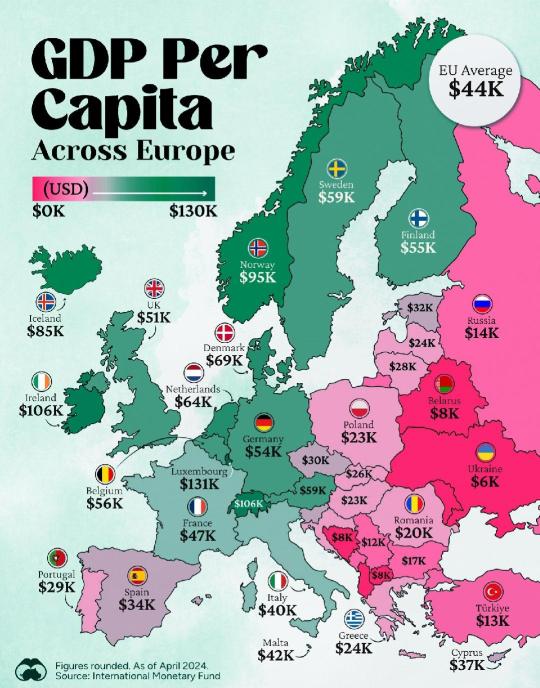
GDP per capita in Europe, April 2024.
Luxembourg, Ireland, and Switzerland are Europe's Richest Countries
158 notes
·
View notes
Note
The US isn't a real country. There's 89 towns called Springfield, and another ten with the same name as each town in europe, the judges are allowed to make laws because their legal system is essentially the same as the one used by early medieval germanic chiefdoms, they insist on claiming to be a democracy even though they have an electoral college and only two parties (which are almost as old as the country itself), they're divided into a federation but are more regionally homogenous than Luxembourg, they make such an absurd incredible amount of drama and destruction worldwide over two singular office buildings getting attacked, it's ridiculous. We should ISOT them to the center of the sun so they leave us alone
Don't forget that they use driving licenses as IDs because they built their entire society around cars, they see guns as fashion and status items (though that might be in line with ancient and medieval cultures) and despite being one of the richest societies in history, almost all their cities are ugly and boring.
Also, Donald Trump is a real person instead of a cartoon of a capitalist that came to life.
Someone was very very drunk when they did the worldbuilding of the US.
82 notes
·
View notes
Text
Climate denial may be on the decline, but a phenomenon at least as injurious to the cause of climate protection has blossomed beside it: doomism, or the belief that there’s no way to halt the Earth’s ascendant temperatures. Burgeoning ranks of doomers throw up their hands, crying that it’s too late, too hard, too costly to save humanity from near-future extinction.
There are numerous strands of doomism. The followers of ecologist Guy McPherson, for example, gravitate to wild conspiracy theories that claim humanity won’t last another decade. Many young people, understandably overwhelmed by negative climate headlines and TikTok videos, are convinced that all engagement is for naught. Even the Guardian, which boasts superlative climate coverage, sometimes publishes alarmist articles and headlines that exaggerate grim climate projections.
This gloom-and-doomism robs people of the agency and incentive to participate in a solution to the climate crisis. As a writer on climate and energy, I am convinced that we have everything we require to go carbon neutral by 2050: the science, the technology, the policy proposals, and the money, as well as an international agreement in which nearly 200 countries have pledged to contain the crisis. We don’t need a miracle or exorbitantly expensive nuclear energy to stave off the worst. The Gordian knot before us is figuring out how to use the resources we already have in order to make that happen.
One particularly insidious form of doomism is exhibited in Kohei Saito’s Slow Down: The Degrowth Manifesto, originally published in 2020 and translated from Japanese into English this year. In his unlikely international bestseller, Saito, a Marxist philosopher, puts forth the familiar thesis that economic growth and decarbonization are inherently at odds. He goes further, though, and speculates that the climate crisis can only be curbed in a classless, commons-based society. Capitalism, he writes, seeks to “use all the world’s resources and labor power, opening new markets and never passing up even the slightest chance to make more money.”
Capitalism’s record is indeed damning. The United States and Europe are responsible for the lion’s share of the world’s emissions since the onset of the Industrial Revolution, yet the global south suffers most egregiously from climate breakdown. Today, the richest tenth of the world’s population—living overwhelmingly in the global north and China—is responsible for half of global emissions. If the super-rich alone cut their footprints down to the size of the average European, global emissions would fall by a third, Saito writes.
Saito’s self-stated goals aren’t that distinct from mine: a more egalitarian, sustainable, and just society. One doesn’t have to be an orthodox Marxist to find the gaping disparities in global income grotesque or to see the restructuring of the economy as a way to address both climate breakdown and social injustice. But his central argument—that climate justice can’t happen within a market economy of any kind—is flawed. In fact, it serves next to no purpose because more-radical-than-thou theories remove it from the nuts-and-bolts debate about the way forward.
We already possess a host of mechanisms and policies that can redistribute the burdens of climate breakdown and forge a path to climate neutrality. They include carbon pricing, wealth and global transaction taxes, debt cancellation, climate reparations, and disaster risk reduction, among others. Economies regulated by these policies are a distant cry from neoliberal capitalism—and some, particularly in Europe, have already chalked up marked accomplishments in reducing emissions.
Saito himself acknowledges that between 2000 and 2013, Britain’s GDP increased by 27 percent while emissions fell by 9 percent and that Germany and Denmark also logged decoupling. He writes off this trend as exclusively the upshot of economic stagnation following the Lehman Brothers bankruptcy in 2008. However, U.K. emissions have continued to fall, plummeting from 959 million to 582 million metric tons of carbon dioxide equivalent between 2007 and 2020. The secret to Britain’s success, which Saito doesn’t mention, was the creation of a booming wind power sector and trailblazing carbon pricing system that forced coal-fired plants out of the market practically overnight. Nor does Saito consider that from 1990 to 2022, the European Union reduced its emissions by 31 percent while its economy grew by 66 percent.
Climate protection has to make strides where it can, when it can, and experts acknowledge that it’s hard to change consumption patterns—let alone entire economic systems—rapidly. Progress means scaling back the most harmful types of consumption and energy production. It is possible to do this in stages, but it needs to be implemented much faster than the current plodding pace.
This is why Not the End of the World: How We Can Be the First Generation to Build a Sustainable Planet by Hannah Ritchie, a data scientist at the University of Oxford, is infinitely more pertinent to the public discourse on climate than Saito’s esoteric work. Ritchie’s book is a noble attempt to illustrate that environmental protection to date boasts impressive feats that can be built on, even as the world faces what she concedes is an epic battle to contain greenhouse gases.
Ritchie underscores two environmental afflictions that humankind solved through a mixture of science, smart policy, and international cooperation: acid rain and ozone depletion. I’m old enough to remember the mid-1980s, when factories and power plants spewed out sulfurous and nitric emissions and acid rain blighted forests from the northeastern United States to Eastern Europe. Acidic precipitation in the Adirondacks, my stomping grounds at the time, decimated pine forests and mountain lakes, leaving ghostly swaths of dead timber. Then, scientists pinpointed the industries responsible, and policymakers designed a cap-and-trade system that put a price on their emissions, which forced industry into action; for example, power plants had to fit scrubbers on their flue stacks. The harmful pollutants dropped by 80 percent by the end of the decade, and forests grew back.
The campaign to reverse the thinning of the ozone layer also bore fruit. An international team of scientists deduced that man-made chlorofluorocarbons (CFC) in fridges, freezers, air conditioners, and aerosol cans were to blame. Despite fierce industry pushback, more than 40 countries came together in Montreal in 1987 to introduce a staggered ban on CFCs. Since then, more countries joined the Montreal Protocol, and CFCs are now largely a relic of the past. As Ritchie points out, this was the first international pact of any kind to win the participation of every nation in the world.
While these cases instill inspiration, Ritchie’s assessment of our current crisis is a little too pat and can veer into the Panglossian. The climate crisis is many sizes larger in scope than the scourges of the 1980s, and its antidote—to Saito’s credit—entails revamping society and economy on a global scale, though not with the absolutist end goal of degrowth communism.
Ritchie doesn’t quite acknowledge that a thoroughgoing restructuring is necessary. Although she does not invoke the term, she is an acolyte of “green growth.” She maintains that tweaks to the world’s current economic system can improve the living standards of the world’s poorest, maintain the global north’s level of comfort, and achieve global net zero by 2050. “Economic growth is not incompatible with reducing our environmental impact,” she writes. For her, the big question is whether the world can decouple growth and emissions in time to stave off the darkest scenarios.
Ritchie approaches today’s environmental disasters—air pollution, deforestation, carbon-intensive food production, biodiversity loss, ocean plastics, and overfishing��as problems solvable in ways similar to the crises of the 1980s. Like CFCs and acid rain, so too can major pollutants such as black carbon and carbon monoxide be reined in. Ritchie writes that the “solution to air pollution … follows just one basic principle: stop burning stuff.” As she points out, smart policy has already enhanced air quality in cities such as Beijing (Warsaw, too, as a recent visit convinced me), and renewable energy is now the cheapest form of power globally. What we have to do, she argues, is roll renewables out en masse.
The devil is in making it happen. Ritchie admits that environmental reforms must be accelerated many times over, but she doesn’t address how to achieve this or how to counter growing pushback against green policies. Just consider the mass demonstrations across Europe in recent months as farmers have revolted against the very measures for which Ritchie (correctly) advocates, such as cutting subsidies to diesel gas, requiring crop rotation, eliminating toxic pesticides, and phasing down meat production. Already, the farmers’ vehemence has led the EU to dilute important legislation on agriculture, deforestation, and biodiversity.
Ritchie’s admonishes us to walk more, take public transit, and eat less beef. Undertaken individually, this won’t change anything. But she acknowledges that sound policy is key—chiefly, economic incentives to steer markets and consumer behavior. Getting the right parties into office, she writes, should be voters’ priority.
Yet the parties fully behind Ritchie’s agenda tend to be the Green parties, which are largely in Northern Europe and usually garner little more than 10 percent of the vote. Throughout Europe, environmentalism is badmouthed by center-right and far-right politicos, many of whom lead or participate in governments, as in Finland, Hungary, Italy, the Netherlands, Serbia, Slovakia, and Sweden. And while she argues that all major economies must adopt carbon pricing like the EU’s cap-and-trade system, she doesn’t address how to get the United States, the world’s second-largest emitter, to introduce this nationwide or even expand its two carbon markets currently operating regionally—one encompassing 12 states on the East Coast, the other in California.
History shows that the best way to make progress in the battle to rescue our planet is to work with what we have and build on it. The EU has a record of exceeding and revising its emissions reduction targets. In the 1990s, the bloc had the modest goal of sinking greenhouse gases to 8 percent below 1990 levels by 2008-12; by 2012, it had slashed them by an estimated 18 percent. More recently, the 2021 European Climate Law adjusted the bloc’s target for reducing net greenhouse gas emissions from 40 percent to at least 55 percent by 2030, and the European Commission is considering setting the 2040 target to 90 percent below 1990 levels.
This process can’t be exclusively top down. By far the best way for everyday citizens to counter climate doomism is to become active beyond individual lifestyle choices—whether that’s by bettering neighborhood recycling programs, investing in clean tech equities, or becoming involved in innovative clean energy projects.
Take, for example, “community energy,” which Saito considers briefly and Ritchie misses entirely. In the 1980s, Northern Europeans started to cobble together do-it-yourself cooperatives, in which citizens pooled money to set up renewable energy generation facilities. Many of the now more than 9,000 collectives across the EU are relatively small—the idea is to stay local and decentralized—but larger co-ops illustrate that this kind of enterprise can function at scale. For example, Belgium’s Ecopower, which forgoes profit and reinvests in new energy efficiency and renewables projects, provides 65,000 members with zero-carbon energy at a reduced price.
Grassroots groups and municipalities are now investing in nonprofit clean energy generation in the United States, particularly in California and Minnesota. This takes many forms, including solar fields; small wind parks; electricity grids; and rooftop photovoltaic arrays bolted to schools, parking lots, and other public buildings. Just as important as co-ownership—in contrast to mega-companies’ domination of the fossil fuel market—is democratic decision-making. These start-ups, usually undertaken by ordinary citizens, pry the means of generation out of the hands of the big utilities, which only grudgingly alter their business models.
Around the world, the transition is in progress—and ideally, could involve all of us. The armchair prophets of doom should either join in or, at the least, sit on the sidelines quietly. The last thing we need is more people sowing desperation and angst. They play straight into the court of the fossil fuel industry.
118 notes
·
View notes
Video
Os Países Mais Ricos da Europa (€)
0 notes
Text
Capping demand from the top fifth, even at a fairly high level, cut greenhouse gas pollution from energy consumption by 9.7%, while raising demand from people in the bottom fifth who also live in poverty to a fairly low level increases emissions by just 1.4%. “We have to start tackling luxury energy use to stay within an equitable carbon budget for the globe,” said Milena Buchs, a professor of sustainable welfare at the University of Leeds and the lead author of the study, published on Monday in the journal Nature Energy, “but also to actually have the energy resources to enable people in fuel poverty to slightly increase their energy use and meet their needs.”
[...]
“The study confirms that energy demand reductions can contribute significantly to climate change mitigation, even as poorer households are lifted out of energy poverty,” said Felix Creutzig, an IPCC author and professor of sustainability economics at the Technical University of Berlin, who was not involved in the study. “High-income, high-education households have more scope and also more capacity in reducing their greenhouse gas emissions – and also carry more responsibility.”
[...]
Studies have shown the global rich – which includes middle-class people in rich countries – play a disproportionate role in heating the planet. In 2015, the top 1% of earners emitted twice as much carbon dioxide as the bottom 50%, according to estimates from the Stockholm Environment Institute and Oxfam. Rich people have more agency to cut their emissions and those of others. A commentary in Nature Energy argued in 2021 that this covered not just how they shop, which the authors stressed was a powerful lever, but also how they act as citizens, investors, role models and workers.
524 notes
·
View notes
Text
Well i decided to translate my lore article into English soooo I hope you will enjoy it!! Also feel free to ask some questions about them or maybe art requests with them, I will be so happy to answer!
CW: legal slavery, slave whump, conditioned whumpee, self-harm, non-con, abuse (I dont know what to add but I hope you understand vibe)
1. A bit of world building
The setting is an alternative Europe of the 70s-80s (historical events are different, this is just to understand the general atmosphere and the development of technology). The economy is based on a system of owning and selling slaves, and is under strict control –you can legally buy/sell a slave only through the Central Market, which is located in every city. Market belongs to the Formelle family, which takes a large percentage from each completed sale, and due to this is one of the richest in the country.
The market is divided into several sections, each sells slaves of different “quality". Every Friday there is a Big Auction where exclusive slaves are sold, which cannot be bought just like that. They are considered more elite because of their physical attractiveness, learning to write/read and other skills. On the rest of the week, in the evenings, Small Auctions are held, where slaves are exhibited that have not been sold for a fixed price during the day. The Big Auction and Small Auctions are held on Monday and Wednesday by Mark, on all other days by Fran.
2. Ethan
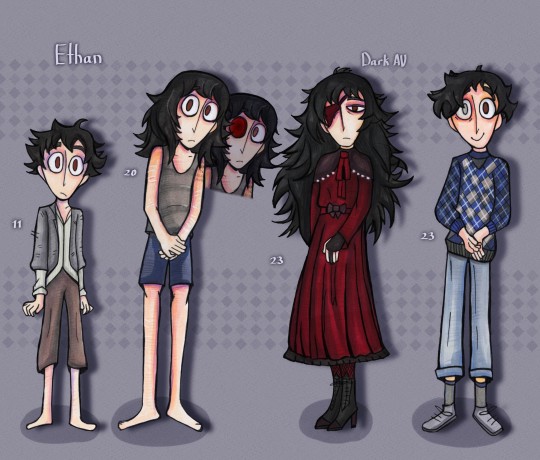
Ethan is a slave, he was born after his mother (also a slave) was raped by her master. She worked in a large estate, with many servants besides them, so for the first couple of years they did not pay much attention to Ethan, but the more he grew, the more he began to resemble his father in appearance. So, in order to avoid a scandal and the disclosure of the rape story, at the age of 11, Ethan was resold to the other side of the country, to a farm.
He lived and grew up there until he was 17. Everything was quite good – Ethan was not given too hard work and most of the time he was not noticed at all, so he often secretly went for walks in the woods, to the river, and other interesting places near the farm. On one of these walks, he accidentally went a little further than usual, got lost and for two days couldnt find the way back. When he returned, the owners thought he was trying to escape, so they beat him up and then resold him to work in a factory.
It was a textile factory and the conditions there were much worse – constant work for 15-17 hours a day, disgusting living conditions, lack of normal food, and in case of disobedience (which was just weariness), Ethan was punished by being locked in a small dark punishment cell (after that he had a phobia of enclosed dark spaces). At such moments, he began to have a strong derealization, and in order to somehow cope with this, Ethan did not come up with anything better than stealing and carrying sharp cutting objects (needles, blades, pins, scissors) and cutting/stabbing his hands, because the pain helped him return to reality and don't start going crazy.
Ethan worked at the factory for about a year until Mark took him away from there.
By nature, Ethan is modest and intimidated, he tries to be as obedient as possible, even to the detriment of his needs. He has low self–esteem and considers himself fundamentally bad, wrong and broken, and thinks that all violence in his direction is right and deserved.
And some facts:
- Ethan can't read or write, but he can count to 30 and tell the time by the clock.
- Ethan constantly hears voices accusing and insulting him, and he is generally prone to visual, auditory and tactile hallucinations, as well as bouts of derealization.
- Ethan considers ignoring and loneliness much worse than any physical punishment.
- His favorite dessert is sugar cubes
3. Mark
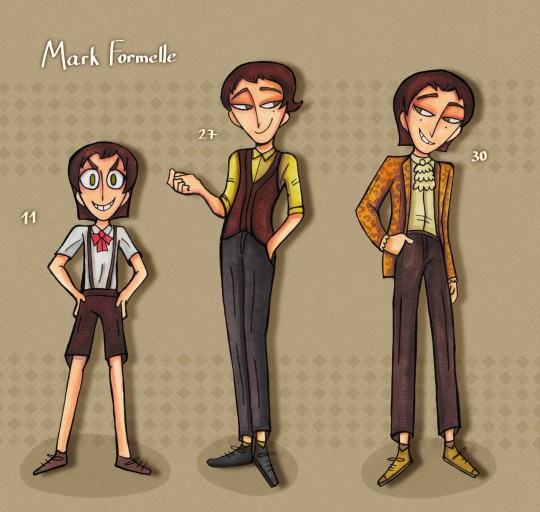
Mark is one of the children of the Formelle family. Thanks to his mother, who indulged his every whim, he grew up spoiled and selfish, used to having everything in the world revolve around him. Because of his character and behavior, his peers did not want to be friends with him, so he either bought the friendship of other children for money, or was surrounded by slaves of his own age (he accidentally killed one of them during a game by throwing a stone at his head, but the next day they just brought a new one to Mark).
After graduating from high school, Mark tried to study at a medical university, but barely mastered the first year. Instead of studying, he preferred going to loud parties, drinking expensive cocktails in bars, going to boutiques with branded clothes and finding other ways to spend his parents' money. After some time, he was forced to work as an auctioneer in order to bring at least some benefit to the family business, but even so he has a lot of time for endless parties and bars.
Since childhood, Mark had a noticeable craving for violence, so when he got older, Mark began to use slaves, originally intended for sale, for his “personal use”. Mark's main fetish is cutting, so that all his slaves either died from wounds and blood loss, or became mutilated to the point that they could not move normally, and their appearance made them unsuitable for resale. Such waste continued for a long time, but in the end, Mark was forbidden to take expensive elite slaves, and instead take cheaper and already used ones, such as Ethan. By the way, Mark chose Ethan for himself only because he saw fresh cuts on him, and he was very amused by how he was hurting himself.
By nature, Mark is very mannered, arrogant, likes to be the center of attention and is fueled by adoration for himself from other people. He has an antisocial personality disorder, so he does not feel empathy for others, except for feigned pity. He likes to control everything and hates it when things don't go the way he intended.
And some facts:
- Mark uses makeup – concealer, concealer, he draws himself small arrows and a mole under his eye, because he heard that it makes the face more symmetrical.
- Mark is a sadomasochist and have ASPD
- His favorite dessert is macaroons
3.1 Mark and Ethan
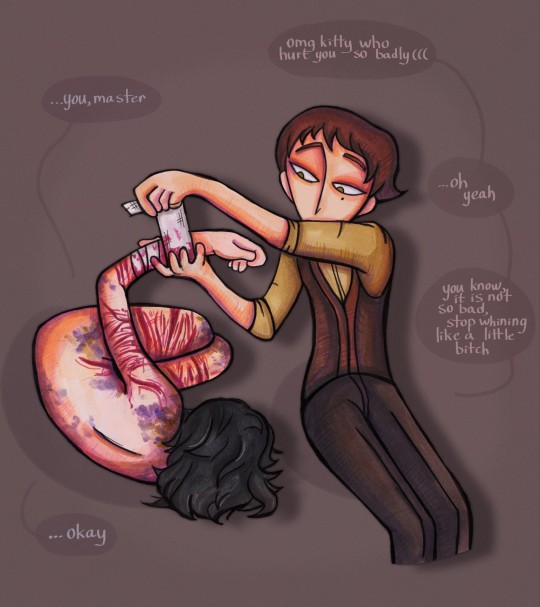
Ethan lived with Mark for two years, and Mark very quickly won Ethan's love and affection through emotional manipulation. Compared to life at the factory, life with Mark was easier and calmer for Ethan, even despite the constant violence in his direction. Mark convinced Ethan that the process of making cuts makes him “beautiful“ and ”full-fledged", all punishments are done “for the good". In addition, beatings, sex, cuts and forced self-harm always alternated with affection, care and words of love, which made Ethan want violence against himself, because after it there would be a pleasant, comfortable part.
Their "relationship" lasted until Mark thought it was a funny idea to fuck Ethan in the eye socket. Before that, Ethan was already physically weak due to the constant mutilation, and after that he finally broke down, constantly just lying, sleeping, crying, and did not show the same emotions as before. Mark tried to sell him, but he couldn't find anyone willing to buy the exhausted, half-dead one-eyed slave, so Mark gave Ethan to his friend, Rafe.
4. Raf (Rafael)
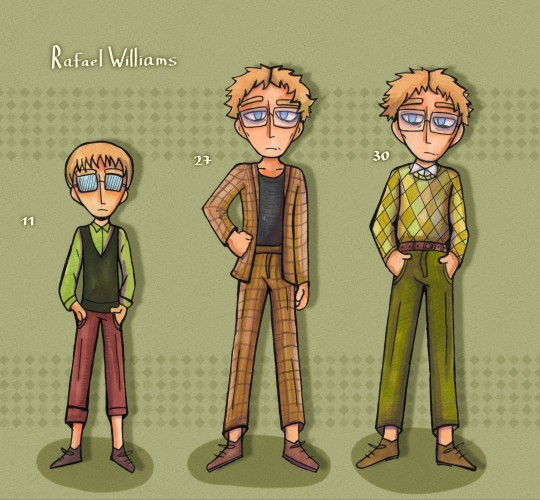
Rafael is a childhood friend of Mark, but unlike him, he does not come from a rich family. His father left the family, Francesca's mother worked a lot and almost did not raise her son, so from childhood Raf was more serious and independent than his peers.
Raf's mother and Mark's father communicated closely, so the children spent a lot of time with each other. Raf was the only one whose friendship Mark couldn't buy, and who didn't suck up to him because of his status. They often quarreled, fought, reconciled, fought again, but in the end they remained close friends for many years to come. Rafe was and remains the only one whom Mark considers his equal, and whose opinion and attitude he cares at least a little.
After graduating from school, Raf dreamed of going to medical school with Mark, but he failed to enroll in budget education, and there was not enough money for paid education. Instead, Raf graduated as an economist and got a job at a regular office position.
By nature, Raf is quite balanced, restrained and serious. He suffers from workaholism and insomnia. Long-term communication with people quickly exhausts him, it is difficult for him to make new friends and even acquaintances.
And some facts:
- In high school and before the first years of university, Rof dated Mark's cousin, Lillian. They parted on quite a good note, realizing that they were not suitable for each other.
- Raf is always haunted by the thought that he is not doing "enough" – not working hard enough, not trying hard enough, and in an attempt to feel satisfied with the completion of some project, he can work continuously for several days in a row.
- Raf has a british cat, Lala, which he picked up from the street (in fact, she went into the house herself and refused to leave). Lala is not very sociable and grumpy, often bites and scratches if you try to pet her.
- Rafe likes to watch true-edge shows on TV and read detective stories, in which the reader is invited to find the killer along with the main character.
- Collects stamps and smoking pipes. - He cooks well, but because of work, he has almost no time for it.
4.1 Raf and Mark
Raf and Mark still communicate well and often, despite the difference in characters. After Rafe broke up with Lillian, Mark suggested that he start dating, but after the recent breakup, Rafe agreed only to a "relationship without a relationship" – they have sex, romance, but they do not call an official relationship.
4.2 Raf and Ethan
As I said above, Mark decided to give Ethan to Raf. Rafe himself has been extremely negative about the slavery system since childhood and does not support it, so he agreed to take Ethan only because he would not have lived long in any other place because of his weakened condition. Ethan will need a long time to get used to the new conditions, especially in contrast after living with Mark. For example, Ethan is used to being punished for any oversight, and if he doesn't, then he needs to harm himself on his own, and Rafe won't understand the reasons for this behavior for a long time.
weeeeell thats all!! I know that the article is a bit crooked and my English is not so good, but I tried my best!!
#whump oc#whump art#whump#oc artist#institutionalized slavery#slave whump#conditioned whumpee#whump stuff#ocs
37 notes
·
View notes
Text
Society of Protection, prologue (Yandere Bungo Stray Dogs x reader x original characters)
A/N-this is a series I’m gonna be starting here and on my ao3, this is an au of sorts where being a yandere is socially acceptable

The Society of Protection…
An organization in Europe made up of ability users, all members are prominent figures in the European social scene. A heiress of one of the richest families in Britain, a famous composer of the Paris Opera House, a genius doctor from the British countryside, a French architect behind the designs of palaces and churches, a young man from a rich family in the countryside of France who seeks out adventure and secrets in unknown corners of the world.
This may seem like some social club on the outside, for the elite and their close friends, but it was much more than that. That heiress, Jane Austen, is using her family’s fortune to help darlings sneak out of the country to other places to hide. That composer, Gaston Leroux, uses the catacombs of Paris to guide darlings to safe houses and out of the city if needed. That genius, Dr. R.L. Stevenson, is giving medical treatment to darlings so they can avoid a public place where they could easily be spotted. The architect, Victor Hugo, designs his buildings with secret rooms and tunnels for these runaway darlings to hide in and stay safe before either Gaston Leroux comes to lead them out of Paris or until that young man, Alexander Dumas comes along with fake documents to smuggle them somewhere safe and covering it up as one of his adventures.
They are able to see past their cultural blindness they were raised in to reach out a hand to help those who need a safe place. A group untied under a common purpose and message of kindness, because they don’t want to end up as a darling themselves.
Now they all sit in Miss Jane Austen’s summer home in the outskirts of Paris, in the drawing room. They sit and chat over a cup of tea that the maid pours, all seeming like a simple group of friends, but when the maid leaves the atmosphere changes. Now they are coworkers discussing business. Gaston sets his tea cup on the table and clears his throat. “Now we have business to attend to. I have received work that The Guild has set up base in Yokohama, Japan. Normally I wouldn’t care about such matters but with three power organizations, The Armed Detective Agency and Port Mafia, in one spot it is bound to become a war zone and who knows what would happen to the darlings there.”
There is a chuckle heard from across the table from Dr. Stevenson who shakes her head with a hum. “You say this like we are not darlings ourselves, but that is besides the point. I’m guessing you want us to deal with this? Who would be your choice? Alexander? Jane? Victor?”
Gaston only smirks in reply and says…
”All of us.”
(characters beneath the cut)

Jane Austen (she/her)
The head and founder of the Society of protection.
Age: 39
Sexuality: bisexual

Gaston Leroux (he/they)
Member of the Society of Protection
Age: 25
Sexuality: Pansexual

Dr. R.L Stevenson (she/they)
member of the Society of Protection
Age: 34
Sexuality: bisexual with a preference towards woman

Victor Hugo (he/him)
Member of the Society of Protection
Age: 21
Sexuality: straight (ally)

Alexander Dumas (he/him)
Member of the Society of Protection
Age: 19
Sexuality: bisexual with a preference towards men
picrew credit- https://picrew.me/en/image_maker/1564386
#yandere bungo stray dogs x reader#yandere bungou stray dogs#yandere bsd#original character x reader#bungou stray dogs oc#bungou stray dogs#bungou stray dogs x reader#yandere dazai#yandere chuuya#yandere mark twain#yandere mori ougai#yandere Fukuzawa#Yandere Edgar Allan Poe
63 notes
·
View notes
Text
“I disagree with Kamala’s position on the war in Gaza..."
Bernie Sanders sets the record straight on Palestine and the election:
youtube
"| understand that there are millions of Americans who disagree with President Biden and Vice President Kamala Harris on the terrible war in Gaza.
I am one of them.
While Israel had a right to defend itself against the horrific Hamas terrorist attack of October 7th, which killed 1,200 innocent people and took 250 hostages, it did not have a right to wage an all-out war against the entire Palestinian people.
It did not have the right to kill 42,000 Palestinians, two-thirds of whom were children, women, and the elderly, or injure over 100,000 people in Gaza.
It did not have the right to destroy Gaza's infrastructure, housing, and healthcare system. It did not have the right to bomb every one of Gaza's 12 universities.
It did not have the right to block humanitarian aid, causing massive malnutrition in children and, in fact, starvation.
And that is why I am doing everything I can to block U.S. military aid and offensive weapon sales to the right-wing extremist Netanyahu government in Israel. And I know that many of you share those feelings, and some of you are saying:
"How can I vote for Kamala Harris if she is supporting this terrible war?"
And that is a very fair question. And let me give you my best answer. And that is that even on this issue, Donald Trump and his right-wing friends are worse. In the Senate, in Congress, the Republicans have worked overtime to block humanitarian aid to the starving children in Gaza. The President and Vice President both support getting as much humanitarian aid into Gaza as soon as possible.
Trump has said Netanyahu is "doing a good job" and has said Biden is "holding him back." He has suggested the Gaza strip would make excellent beachfront property for development. And it is no wonder Netanyahu prefers to have Donald Trump in office.
But even more importantly - and this I promise you - after Kamala wins, we will together do everything that we can to change U.S. policy toward Netanyahu. An immediate ceasefire, the return of all hostages, a surge of massive humanitarian aid, the stopping of settler attacks on the West Bank, and the rebuilding of Gaza for the Palestinian people.
And let me be clear. We will have, in my view, a much better chance of changing U.S. policy with Kamala than with Trump, who is extremely close to Netanyahu and sees him as a like-minded right-wing extremist ally.
But let me also say this - and I deal with this every single day as a U.S. Senator - as important as Gaza is, and as strongly as many of us feel about this issue, it is not the only issue at stake in this election.
If Trump wins. women in this country will suffer an enormous setback and lose the ability to control their own bodies. That is not acceptable.
If Trump wins, to be honest with you, the struggle against climate change is over. While virtually every scientist who has studied the issue understands that climate change is real and an existential threat to our country and the world, Trump believes it is a "hoax." And if the United States, the largest economy in the world, stops transforming our energy system away from fossil fuel, every other country - China, Europe, all over the world - they will do exactly the same thing. And God only knows the kind of planet we will leave to our kids and future generations.
If Trump wins, at a time of massive income and wealth inequality, he will demand even more tax breaks for the very richest people in our country while cutting back on programs that working families desperately need. The rich will only get richer while the minimum wage will remain at $7.25 an hour and millions of our fellow workers will continue to earn starvation wages.
Did you all see the recent Trump rally at Madison Square Gardens? Well, I did. And what I can tell you is that, as a nation, as all of you know, we have struggled for years, against impossible odds, to overcome all forms of bigotry - whether it's racism, whether it's sexism, whether it's homophobia, whether it's xenophobia, you name it. We have tried to fight against bigotry. But that is exactly what we saw on display at that unbelievable Trump rally. It was not a question of speakers getting up there, disagreeing with Kamala Harris on the issue. That wasn't the issue at all. They were attacking her simply because she was a woman, and a woman of color. Extreme, vulgar sexism and racism.
Is that really the kind of America that we can allow?
So let me conclude by saying this: this is the most consequential election in our lifetimes. Many of you have differences of opinion with Kamala Harris on Gaza. So do I.
But we cannot sit this election out. Trump has got to be defeated. Let's do everything we can in the next week to make sure that Kamala Harris is our next president.
Thank you very much."
#bernie sanders#election 2024#free palestine#free gaza#gaza genocide#gaza strip#gazaunderattack#gaza#save palestine#i stand with palestine#palestine genocide#arrest netanyahu#netanyahu a criminal of war#kamala harris#donald trump#vote#us politics#climate change#women's rights#capitalism#late stage capitalism#eat the rich#voting
13 notes
·
View notes